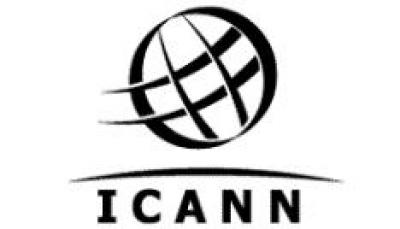

Starting in 2010, ICANN, the Internet’s governing body, plans to issue a vast number of new top-level domains, at the same time as expanding into non-ASCII alphabets such as Arabic and Chinese . But before it can happen, it has to settle arguments over how much power it will give trademark holders, and whether ICANN itself is too US-centric to administer global domains at all.
The new generic top level domains (new gTLDs) could change the way users find businesses on the Internet, by providing domains such as dot-shop or dot-bank alongside existing gTLDs like dot-com. Large firms, who can afford the expected $185,000 fee could also get a bigger shop window with domains like dot-amazon or dot-ibm, and social networks could use a domain to give all their users a simple domain like name.facebook.
Internationalising the Internet
At the same time, ICANN intends to allow more alphabets, using Internationalized Domain Names (IDNs) so firms can have internet domains in their own language, be it Chinese, Arabic, Cyrillic or Hebrew.
The Internet has expanded since 2000, from eight original gTLDs to around 25, but the new rolling process could result in 250 gTLDs by the end of 2010 and, many more thereafter. Since the idea was floated in 2008, trademark owners have complained that ICANN is opening up new opportunities for “cybersquatters” who buy trademark-infringing domains, while others have accused it of bending over backwards to give large trademark owners unfair new rights and powers in cyberspace.
ICANN heard a lot of these criticisms – and defended itself robustly – at a meeting in London yesterday, designed to guide the process of issuing and protecting new gTLDs. Formal presentations and comments from the floor were heard at the meeting, in London’s Royal Institute of British Architects.
“Who will administer the dot-london domain?” asked Lesley Cowley, chief executive of Nominet, the body that already aministers the dot-uk domain. “And will it be done according to local needs, or the ideas of someone based in the US?”
Which brands will win?
Others pointed out the difficulty of administering the claims of companies with the same name. For instance, Sun Microsystems could get its own gTLD, but might have to compete with the Sun newspaper within other new domains, such as dot-media, but ICANN believes the situation may actually improve when the new domains appear.
“It is possible that brands may have less need to defend their brand,” said Doug Brent, chief operating officer of ICANN. For people looking for IBM, the dot-ibm domain would be the obvious place to go, so there would be no incentive for cybersquatters to buy related domains in the dot-com gTLD, he said.
gTLDs would not be US-biased, said Brent, because in the event of disputes, ICANN would work with the World Intellectual Property Organisation (WIPO), a UN agency which negotiates world trademark rules: “We want the process to be between the applicant and the objector,” he said.
Page: 1 2
But will Beijing or ByteDance allow sale? Amazon joins potential bidders for TikTok in US,…
Elon Musk dismisses report that Trump told cabinet that he expects Musk to leave his…
Mark Zuckerberg is reportedly lobbying President Donald Trump for a settlement to avoid antitrust trial…
As global markets reel from Trump's tariffs, the price of Bitcoin slides as investors seek…
Semiconductor imports are free of Trump's tariff war, but concerns remain over imports of smartphones…
View Comments
You show me a scared or "confused" consumer and I'll show you a tradmark lawyer paying a "blogger".
Trademark owners have valid concerns regarding the new round of GTLDs. However, there are other interested parties, including ourselves, who strongly desire the new TLD round to proceed in a timely fashion.
With the support of Al Gore and the Sierra Club, we intend to apply for the .ECO web address is 2010. Our goal is to make .ECO a ubiquitous and recognizable web extension, much like .ORG, and provide a steady, growing source of funding for leading environmental organizations.
We strongly believe that our proposal can contribute the greatest amount of money to people who can make a real difference in climate change, instead of promoting feel-good non-solutions to these critical problems.
http://www.supportdoteco.com